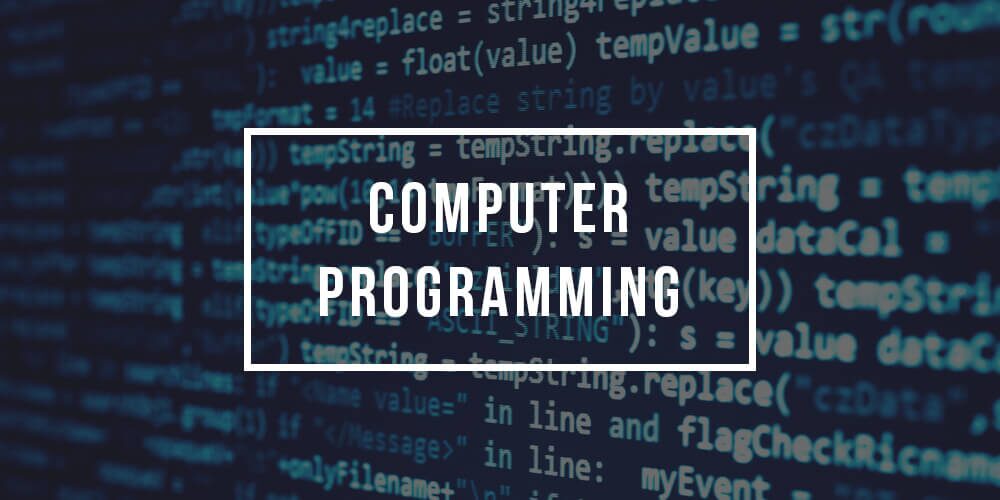The world of computer programming can be overwhelming for beginners, but with the right approach, anyone can develop the skills needed to excel. Whether you’re interested in building websites, creating software, or diving into data science, programming is a versatile and rewarding career path. The key is knowing where to start and how to continue growing. In this post, we’ll explore the steps to begin your programming journey and set yourself up for success.

Understanding the Fundamentals
Before jumping into complex programming projects, it’s crucial to grasp the basics of computer programming. Learning the fundamentals sets the stage for everything you’ll build in the future. Start with code learning by taking beginner-friendly courses that introduce you to the essential building blocks: variables, loops, conditionals, and functions. These core concepts are present in almost every programming language and will be invaluable as you move forward.
Python, JavaScript, and Ruby are often recommended for beginners due to their straightforward syntax and ease of learning. Online platforms like Codecademy, freeCodeCamp, or Coursera offer comprehensive programming lessons that are perfect for those just starting out. Whether you prefer structured learning or hands-on coding, these platforms will help you get familiar with programming logic and essential concepts.
Exploring Different Programming Paths
As you become more comfortable with the basics, it’s important to explore the various fields within programming to see what aligns with your interests. Programming offers a wide range of specializations, and choosing the right one for you will help focus your learning efforts. Two popular paths are front-end development and back-end development.
Front-end developers focus on the part of an application or website that users interact with directly. This includes designing layouts, buttons, and visuals using HTML, CSS, and JavaScript. If you enjoy making interactive user interfaces and ensuring websites look polished and professional, front-end development might be the ideal choice for you.
On the other hand, back-end developers deal with the server-side logic and databases. They ensure that data is properly stored, retrieved, and processed in applications. Back-end development requires knowledge of server-side languages like Python, Ruby, or Node.js, along with database systems such as MySQL or MongoDB. This path might appeal to those who enjoy problem-solving, logic, and working behind the scenes.
For those who want to master both sides, full-stack development offers the best of both worlds. Full-stack developers are proficient in both front-end and back-end technologies, making them highly valuable in the job market.
Gaining Hands-On Experience
Once you’ve chosen a path, the best way to improve is through hands-on experience. Coding exercises are a great way to practice your skills in a focused and structured manner. Websites like LeetCode, HackerRank, and Codewars provide a wide range of problems that test your knowledge of algorithms, data structures, and real-world scenarios.
Aside from exercises, diving into real programming projects is essential to solidify your understanding. Start small by building simple applications, such as a personal blog, a calculator, or a task management app. As you gain confidence, challenge yourself with more complex projects that require multiple components, such as a full-stack web application. Engaging in projects not only hones your skills but also helps build a portfolio that will be invaluable when applying for jobs.
If you’re looking for guidance, attending coding workshops can be a great way to learn from experts and collaborate with others. These workshops often provide insights into industry best practices, helping you elevate the quality of your work.
Mastering Data Structures and Algorithms
To truly excel in computer programming, you need to understand how to solve problems efficiently. This is where data structures and algorithms come into play. Knowing how to structure data and design efficient algorithms will set you apart from other programmers, especially when working on large-scale applications.
Common data structures include arrays, linked lists, and hash maps, all of which have different strengths and weaknesses depending on the problem at hand. Similarly, algorithms like sorting, searching, and graph traversal are critical for optimizing performance. Taking an algorithms course or studying specific coding challenges on platforms like LeetCode can help sharpen your problem-solving skills.
Continuous Learning and Staying Updated
The technology landscape is constantly evolving, and to stay competitive as a programmer, continuous learning is essential. As you progress, make it a habit to regularly follow industry news, new programming frameworks, and emerging trends. The tools and languages that are popular today may not be as relevant tomorrow, so staying informed ensures you remain adaptable.
Platforms like GitHub and Stack Overflow are great resources for engaging with the developer community and learning from others. These platforms offer a wealth of knowledge, including open-source projects that you can contribute to, helping you refine your skills and collaborate with experienced developers.
Additionally, online coding tutorials and video lessons on YouTube can introduce you to new concepts, tools, and best practices. By staying curious and continuously challenging yourself, you’ll be able to keep pace with the fast-changing world of software engineering.
Building a Career in Software Engineering
If your goal is to turn programming into a career, developing a solid understanding of software engineering principles is critical. Software engineering goes beyond writing code; it involves designing, testing, and maintaining large-scale applications. Understanding concepts like version control, code optimization, and system architecture will make you a more well-rounded programmer.
Participating in real-world programming projects and internships will give you insight into how professional software development teams operate. The more experience you have, the better prepared you’ll be for interviews and job applications. Many companies look for candidates who have demonstrated their skills through portfolio work and coding challenges, so make sure to build a diverse body of work.

Starting your journey into computer programming may seem daunting, but with a clear strategy, you can make steady progress and achieve your goals. Focus on learning the basics, explore different programming paths, and immerse yourself in hands-on projects. Whether you’re drawn to front-end development, back-end development, or aspire to be a full-stack developer, there’s a path for you in this exciting field. By continuously learning and staying engaged with the programming community, you’ll be well on your way to excelling in the world of code.




